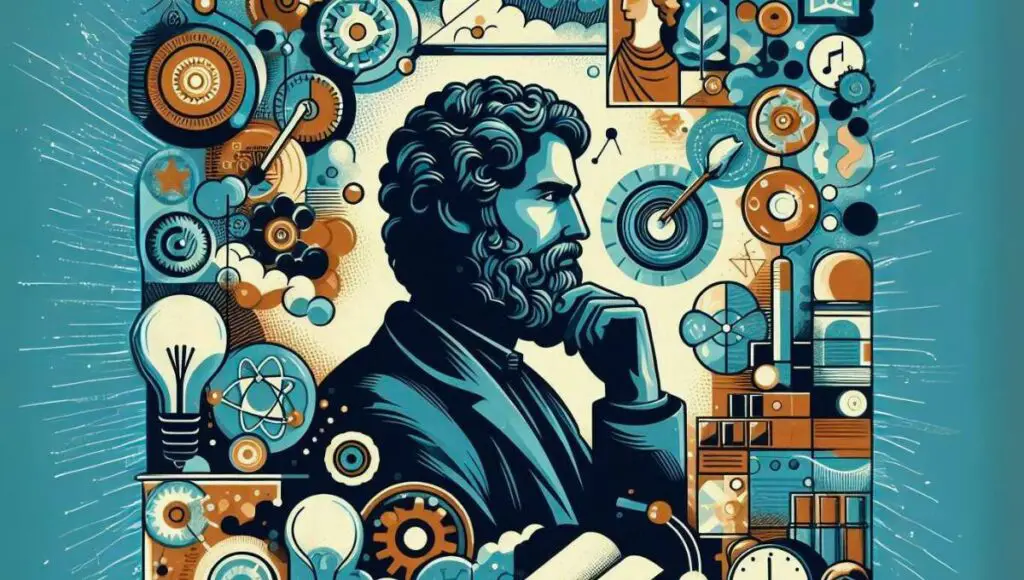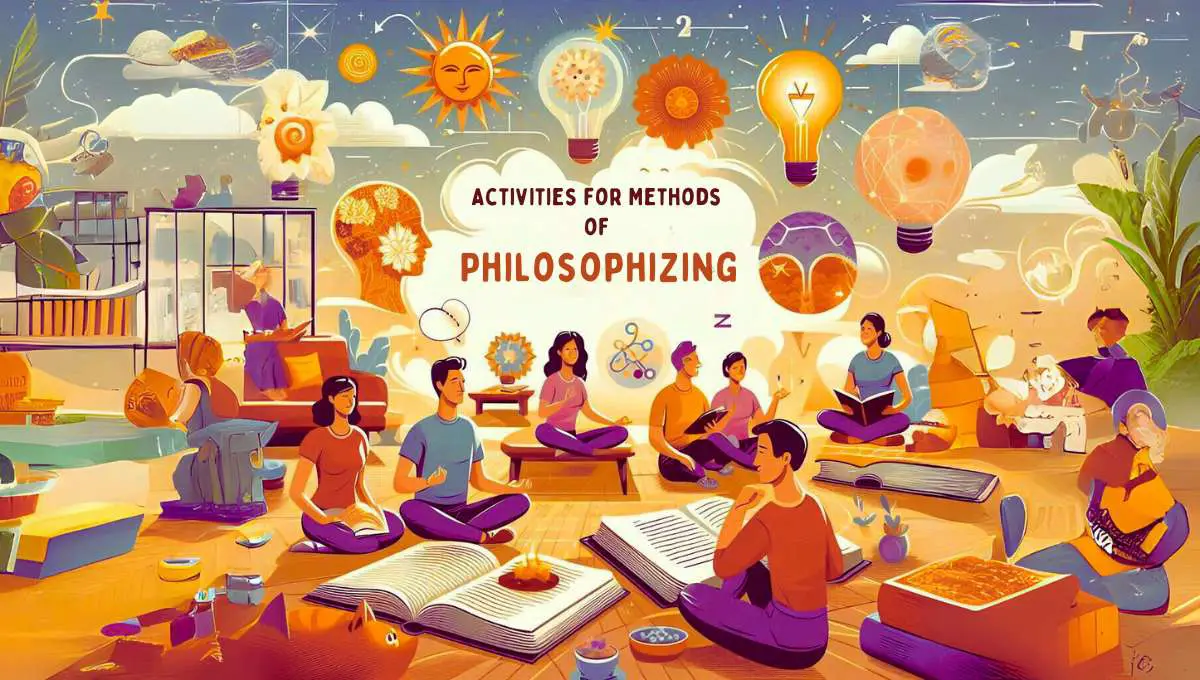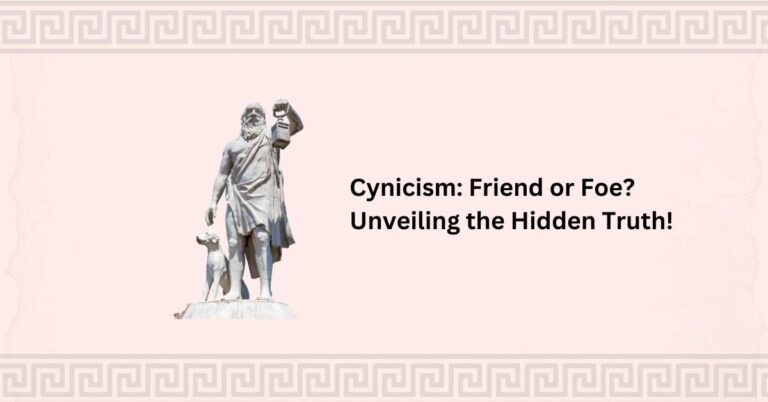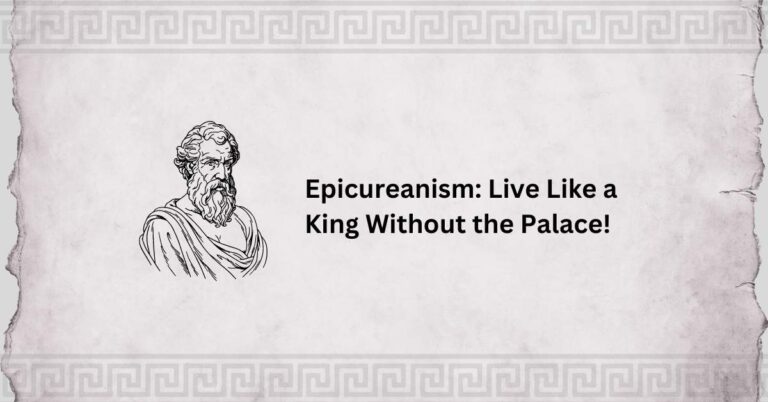Methods of Philosophizing: 7 Key Methods Explained!
Have you ever caught yourself pondering the mysteries of life, like why we’re here or what makes something right or wrong? These questions are at the core of philosophizing, and they’re what make our minds tick.
So, what exactly is philosophizing? Simply put, it’s diving deep into life’s big questions and seeking wisdom. It’s our way of trying to understand the universe and our place in it. Philosophizing isn’t just for old bearded men in togas. It’s for anyone curious about the world. It helps us navigate life’s challenges, understand different viewpoints, and live with purpose. Whether you’re deciding what’s fair or pondering your existence, philosophizing gives you tools to think more clearly.
In this blog, we’ll break down what philosophizing means, explore how the Tagalog culture approaches it, compare different methods of philosophizing, and share fun activities to get your philosophical gears turning. Get ready to think like a philosopher!
What is Philosophizing?
Philosophizing is essentially the act of thinking deeply and critically about fundamental questions of existence. It involves exploring concepts like:
Knowledge: What is truth? How do we know what we know?
Existence: What is reality? What is the nature of consciousness?
Values: What is good and bad? What is right and wrong?
Meaning: What is the purpose of life?
While philosophers engage in this process rigorously and systematically, philosophizing can be done by anyone, anytime. It’s about questioning assumptions, exploring different perspectives, and seeking understanding.
Key aspects of philosophizing:
Questioning: Challenging existing beliefs and seeking deeper explanations.
Reasoning: Using logic and argumentation to support ideas.
Reflection: Considering different perspectives and implications.
Open-mindedness: Being receptive to new ideas and possibilities.
Historical Context:
Philosophizing has a rich history that stretches back to ancient civilizations. The ancient Greeks were among the first to systematically explore philosophical questions.
Socrates, through his method of dialectical questioning, encouraged people to think deeply and critically.
Plato, a student of Socrates, wrote dialogues that explored philosophical ideas in depth. Aristotle, Plato’s student, wrote extensively on many subjects, laying the foundation for Western philosophy and science.
In the East, Confucius and Laozi provided frameworks for thinking about ethics, society, and the universe. Indian philosophy brought forth systems like Vedanta and Buddhism, which explored metaphysics, ethics, and epistemology.
The Middle Ages saw the fusion of philosophy with theology, with figures like St. Augustine and Thomas Aquinas seeking to reconcile faith with reason.
The Renaissance reignited interest in classical philosophy and encouraged new ways of thinking.
The Enlightenment era brought forward thinkers like Descartes, who questioned everything to find indubitable truths, and Kant, who explored the limits of human understanding.
The 19th and 20th centuries saw the emergence of existentialism, phenomenology, and analytic philosophy, with philosophers like Nietzsche, Heidegger, Sartre, and Wittgenstein pushing the boundaries of philosophical thought.
Key Philosophers:
- Socrates: Known for the Socratic method, he believed in questioning everything to gain deeper understanding. His famous dictum, “The unexamined life is not worth living,” encapsulates his philosophy.
- Plato: Through his dialogues, he explored ideas about reality, knowledge, and ethics. His theory of forms proposed that the material world is just a shadow of a higher, truer reality.
- Aristotle: A polymath, he wrote on diverse subjects including logic, metaphysics, ethics, politics, and biology. His empirical approach laid the groundwork for scientific inquiry.
- Descartes: Often called the father of modern philosophy, he emphasized doubt and questioning, leading to his famous conclusion, “Cogito, ergo sum” (I think, therefore I am).
- Kant: He examined the limits of human reason and proposed that our understanding is shaped by both sensory experience and innate concepts.
- Nietzsche: Known for his critiques of traditional values and religion, he introduced concepts like the will to power and the eternal recurrence.
- Sartre: A leading figure in existentialism, he explored themes of freedom, responsibility, and the human condition.
Relevance Today:
Philosophizing remains highly relevant in our modern world. It equips us with the tools to tackle contemporary issues such as the ethical implications of technology, climate change, and social justice. By questioning the status quo and exploring various viewpoints, we can make more informed and thoughtful decisions.
For instance, in the realm of artificial intelligence, philosophical inquiry helps us consider the ethical ramifications of machine learning and automation. In debates about climate change, philosophy encourages us to reflect on our responsibilities to future generations and the natural world.
Philosophizing also enhances personal growth. It encourages critical thinking, self-reflection, and a deeper understanding of our beliefs and values. In a fast-paced world filled with information overload, taking the time to philosophize can help us find clarity and purpose.
In education, philosophizing fosters critical thinking and problem-solving skills, preparing students to navigate complex issues and think independently. In everyday life, it helps us engage more deeply with the world around us, fostering empathy and understanding.
In sum, philosophizing is not just an academic pursuit; it’s a practical and vital activity that enriches our personal lives and contributes to societal progress.
Methods of Philosophizing in Tagalog
Introduction to Tagalog Philosophizing:
Tagalog philosophizing stands out due to its unique blend of indigenous, colonial, and contemporary influences. Deeply rooted in Filipino culture, it emphasizes community, harmony, and practical wisdom. Unlike the abstract and often individualistic approach of Western philosophy, Tagalog philosophizing is more communal and contextual. It focuses on lived experiences, relationships, and the practical aspects of life.
Historical Development:
The history of Tagalog philosophizing is rich and varied. Before Spanish colonization, indigenous Filipinos had their own systems of belief and thought, centered around nature, community, and spirituality. The arrival of the Spanish in the 16th century introduced Western philosophical and religious ideas, blending with existing beliefs to create a unique philosophical tapestry.
During the Spanish colonial period, Filipino intellectuals began to engage with Western philosophy more formally. The 19th century saw figures like José Rizal and Apolinario Mabini using philosophical ideas to fuel the struggle for independence. Post-independence, Filipino philosophy continued to evolve, incorporating elements of American, European, and Asian thought while remaining distinctly Filipino.
Key Philosophers and Contributions:
- José Rizal: A national hero and polymath, Rizal used his writings to challenge colonial rule and promote social reform. His novels “Noli Me Tangere” and “El Filibusterismo” are imbued with philosophical reflections on freedom, identity, and justice.
- Apolinario Mabini: Known as the “Brains of the Revolution,” Mabini’s political philosophy emphasized the importance of moral integrity and social justice. His writings laid the groundwork for the Philippines’ struggle for independence.
- Florentino Timbreza: A contemporary philosopher, Timbreza has written extensively on Filipino philosophy, exploring how traditional beliefs and practices can inform modern philosophical discourse. He emphasizes the need to develop a distinctly Filipino philosophy that speaks to the country’s unique cultural and historical context.
Comparison with Western Methods:
Tagalog philosophizing differs significantly from Western methods in several ways. While Western philosophy often values individualism and abstract reasoning, Tagalog philosophy is more communal and pragmatic. It focuses on real-life issues and the collective well-being of the community.
In Western philosophy, thinkers like Descartes and Kant emphasize the importance of doubt and rationality. In contrast, Tagalog philosophy values relational understanding and practical wisdom (often referred to as “loob” or inner self).
This concept of “loob” reflects a deep sense of interconnectedness and empathy, prioritizing relationships over individual rationality.
Moreover, Western philosophy often engages in theoretical debates about the nature of reality, knowledge, and existence. Tagalog philosophy, however, is more concerned with how these ideas play out in everyday life.
It is less about constructing grand theories and more about finding practical solutions to real-world problems.
In summary, while Western methods of philosophizing often seek universal truths through abstract reasoning, Tagalog methods emphasize practical wisdom, community, and relational understanding. This makes Tagalog philosophizing uniquely attuned to the lived experiences and cultural context of the Filipino people.
Compare and Contrast Different Methods of Philosophizing
1. Analytic Method:
The Analytic method focuses on clarity and logical rigor. It seeks to break down complex concepts into simpler components for better understanding. Key characteristics include precision, argument analysis, and language clarity. Notable philosophers in this tradition are Bertrand Russell, who emphasized logical analysis, and Ludwig Wittgenstein, known for his work on language and meaning. Analytic philosophy often deals with problems in logic, language, and the sciences, aiming to provide clear and concise answers.
2. Continental Method:
The Continental method is more holistic and less focused on strict logical analysis. It addresses broad questions about human existence, culture, and society. Key characteristics include historical context, interpretive approaches, and a focus on human experience. Notable philosophers include Friedrich Nietzsche, who explored themes of power and morality, and Martin Heidegger, known for his work on being and time. Continental philosophy often engages with literature, art, and history, seeking to understand the human condition in a broad and nuanced manner.
3. Pragmatic Method:
The Pragmatic method emphasizes the practical application of ideas and their effects on human life. It focuses on the consequences of beliefs and actions, advocating for ideas that work in practice. Key characteristics include a focus on practical outcomes, adaptability, and experiential learning. Notable philosophers in this tradition are William James, who emphasized the importance of beliefs that make a difference in everyday life, and John Dewey, who applied pragmatic principles to education and democracy. Pragmatism values the usefulness of ideas over their theoretical purity.
4. Existentialism:
Existentialism is a philosophical movement that explores individual freedom, choice, and the quest for meaning in a seemingly indifferent universe. It centers on the lived experience of individuals and emphasizes personal responsibility and authenticity. Key figures in existentialism include:
- Jean-Paul Sartre: Sartre argued that existence precedes essence, meaning that individuals first exist and then define their own nature through actions. He believed that we are condemned to be free, meaning we are responsible for creating our own values in a world without inherent meaning. His works, such as “Being and Nothingness,” delve into the nature of freedom, the self, and existential angst.
- Simone de Beauvoir: An influential existentialist and feminist, de Beauvoir explored themes of freedom and oppression in her seminal work, “The Second Sex.” She examined how societal structures and expectations limit women’s freedom and self-definition. Her existentialist perspective emphasizes the importance of transcending societal roles to achieve personal freedom.
5. Phenomenology:
Phenomenology focuses on the structures of experience from the first-person perspective, seeking to describe phenomena as they are experienced by individuals. It emphasizes the subjective nature of experience and aims to uncover the essential structures of consciousness. Notable philosophers in phenomenology include:
- Edmund Husserl: Husserl, the founder of phenomenology, sought to return to the “things themselves” by examining how objects are experienced and constituted in consciousness. His method involves bracketing or suspending judgments about the existence of the external world to focus purely on how experiences are structured. His work, particularly “Logical Investigations,” lays the groundwork for understanding how meaning is constructed in experience.
- Maurice Merleau-Ponty: A key figure in phenomenology, Merleau-Ponty extended Husserl’s ideas by emphasizing the role of the body in shaping perception and experience. In “Phenomenology of Perception,” he argues that our embodied experience fundamentally influences how we interact with and understand the world, challenging the notion of the mind as a detached observer.
6. Hermeneutics:
Hermeneutics is the art and science of interpretation, especially of texts, aiming to understand their meaning within a broader context. It deals with the process of interpreting written works and spoken words, considering historical and cultural contexts. Prominent figures in hermeneutics include:
- Hans-Georg Gadamer: Gadamer’s philosophical hermeneutics, outlined in “Truth and Method,” emphasizes the fusion of horizons between the interpreter and the text. He argues that understanding is a dialogical process where the interpreter’s background and the text’s historical context interact to produce meaning. His work explores how preconceptions and cultural contexts shape our interpretation of texts.
- Paul Ricoeur: Ricoeur expanded on Gadamer’s ideas, focusing on the interpretative process and the interplay between narrative and identity. In works like “Time and Narrative,” he examines how stories and narratives help individuals make sense of their lives and experiences, bridging the gap between individual experiences and broader cultural narratives.
7. Eastern Philosophies:
Eastern philosophies encompass a range of traditions that emphasize harmony, balance, and inner peace, often integrating spiritual and practical aspects of life. Key traditions include:
- Confucianism: Founded by Confucius, this philosophy focuses on ethics, social harmony, and proper conduct. It emphasizes the importance of family, social roles, and moral integrity. Confucian teachings stress the cultivation of virtues such as respect, loyalty, and righteousness, guiding individuals in their personal and social lives.
- Taoism: Rooted in the teachings of Laozi, Taoism advocates for living in harmony with the Tao, or the fundamental principle that flows through all life. It emphasizes simplicity, spontaneity, and alignment with the natural order. The “Tao Te Ching,” a foundational text, explores the nature of the Tao and offers guidance on achieving balance and tranquility.
- Buddhism: Founded by Siddhartha Gautama (the Buddha), Buddhism teaches the path to enlightenment through practices like meditation, ethical conduct, and wisdom. It focuses on overcoming suffering and achieving Nirvana, a state of liberation from the cycle of birth and rebirth. Key concepts include the Four Noble Truths and the Eightfold Path, which provide a framework for understanding and transcending the nature of human suffering.
In summary, these philosophical methods offer diverse approaches to understanding human experience. Existentialism delves into personal freedom and meaning, phenomenology examines the structure of experience, hermeneutics focuses on interpretation, and Eastern philosophies provide insights into living harmoniously and spiritually. Each method contributes a unique perspective, enriching our overall understanding of philosophy.
Comparative Analysis
Analytic Philosophy:
- Strengths:
Analytic philosophy is known for its clarity and precision. It helps break down complex issues into simpler parts, making it useful for solving problems related to logic, language, and science. This method provides clear and exact answers. - Weaknesses:
It can sometimes be too technical and disconnected from everyday life. Its focus on detailed analysis may make it less relevant to common, real-world concerns.
Continental Philosophy:
- Strengths:
Continental philosophy offers deep insights into human experiences and cultural contexts. It explores big questions about existence, history, and society, providing a rich understanding of these areas. - Weaknesses:
This approach can be abstract and difficult to understand. It may lack the clarity found in analytic philosophy, which can make its ideas challenging to apply in practical situations.
Pragmatic Philosophy:
- Strengths:
Pragmatic philosophy focuses on practical outcomes and how ideas work in real life. It’s adaptable and considers how beliefs impact our everyday actions and decisions. - Weaknesses:
It might not dive deeply into theoretical concepts. Its focus on practicality can sometimes overlook more profound or complex ideas.
Existentialism and Phenomenology:
- Strengths:
Existentialism and phenomenology explore personal experience, freedom, and the search for meaning. They offer deep reflections on what it means to exist and how we experience the world. - Weaknesses:
These methods can be very subjective and hard to analyze logically. Their focus on individual experience may lead to varying interpretations and can be less systematic.
Hermeneutics:
- Strengths:
Hermeneutics is the study of interpretation, especially of texts. It helps us understand how different perspectives can influence the meaning of texts, providing a deeper understanding of written works and their contexts. - Weaknesses:
It can be subjective, meaning different people might interpret texts in different ways. This can lead to multiple, sometimes conflicting, interpretations.
Eastern Philosophies:
- Strengths:
Eastern philosophies, such as Confucianism, Taoism, and Buddhism, focus on balance, harmony, and spiritual growth. They offer practical wisdom and ways to live in harmony with oneself and the world. - Weaknesses:
These philosophies can be seen as mystical and less empirical compared to Western standards. Their abstract ideas might be hard to relate to for those who prefer practical, evidence-based approaches.
Each method of philosophizing has its own strengths and weaknesses. Analytic philosophy is precise and clear, making it useful for solving specific problems.
Continental philosophy provides deep cultural and existential insights but can be abstract. Pragmatic philosophy focuses on practical results but may lack depth.
Existentialism and phenomenology offer profound reflections on personal experience, while hermeneutics helps us interpret texts but can be subjective.
Eastern philosophies offer holistic views on life and spirituality, though they might seem mystical to some.
Together, these methods give us a broad and diverse understanding of philosophy, each contributing valuable perspectives on different aspects of human life and thought.
Activities for Methods of Philosophizing
Philosophical Discussions:
- Tips for Organizing Discussions:
To set up a productive philosophical discussion, start by selecting a clear topic or question. Ensure all participants understand the topic and encourage everyone to share their perspectives. Create a respectful environment where different viewpoints are valued. - Participating in Discussions:
Listen actively to others and respond thoughtfully. Ask open-ended questions to deepen the conversation and challenge ideas constructively. Aim to understand different perspectives and build on others’ contributions. - Suggested Topics and Questions:
Consider discussing topics such as “What is the nature of reality?” or “How do we define justice?” Questions like “What does it mean to live a good life?” can also spark engaging debates and diverse viewpoints.
Philosophical Writing and Journaling:
- Starting a Philosophical Journal:
Begin by dedicating a notebook or digital document to your philosophical thoughts. Write regularly about your reflections, questions, and ideas. Use your journal to explore and clarify your understanding of various philosophical concepts. - Maintaining Your Journal:
Set aside time each week for journaling. Reflect on recent discussions, readings, or personal experiences. Record your evolving thoughts and questions, and review your entries periodically to track your progress. - Writing Prompts and Exercises:
Try prompts like “Reflect on a recent moral dilemma you faced and analyze it philosophically,” or “Write about a philosophical concept that challenges your beliefs.” Exercises such as developing your own philosophical argument on a chosen topic can also be insightful.
Critical Thinking Exercises:
- Enhancing Critical Thinking Skills:
Engage in activities that challenge your reasoning and analytical abilities. Practice identifying logical fallacies in arguments and constructing well-reasoned responses. - Examples of Logical Puzzles:
Solve puzzles such as “If all philosophers are thinkers and some thinkers are not creative, can we conclude that some philosophers are not creative?” These puzzles help refine your logical reasoning skills. - Thought Experiments:
Explore thought experiments like “The Trolley Problem,” which involves making ethical decisions in hypothetical scenarios. These exercises stimulate deep thinking and help examine the implications of various philosophical positions.
Philosophical Readings and Analysis:
- Recommended Books and Articles:
Read classic texts such as “Meditations” by Marcus Aurelius, “The Republic” by Plato, and “Critique of Pure Reason” by Immanuel Kant. Contemporary works like “Justice: What’s the Right Thing to Do?” by Michael Sandel can also provide valuable insights. - Techniques for Analyzing Texts:
When reading philosophical texts, start by summarizing the main arguments and key concepts. Analyze the author’s reasoning and consider how the ideas relate to other philosophical theories. Discuss and write about the text to deepen your understanding and critique its arguments.
By engaging in these activities, you can deepen your understanding of philosophy and develop your skills in discussing, writing about, and analyzing philosophical ideas. These practices not only enhance your philosophical knowledge but also sharpen your critical thinking and reasoning abilities.
Conclusion
In summary, the exploration of different methods of philosophizing offers a rich and varied landscape for understanding the complexities of human thought and experience.
From the precise and logical approach of analytic philosophy to the interpretive depth of Continental philosophy, each method brings unique strengths to the table.
Pragmatic philosophy grounds us in practical realities, while existentialism and phenomenology provide profound insights into personal experience and meaning.
Hermeneutics enhances our ability to interpret texts, and Eastern philosophies offer holistic perspectives on balance and spiritual growth.
Engaging in philosophical discussions, maintaining a philosophical journal, practicing critical thinking, and delving into philosophical readings are all valuable activities that can deepen your understanding and appreciation of these methods.
By exploring these different approaches and actively participating in philosophical practice, you gain a broader and more nuanced perspective on life’s fundamental questions.
Ultimately, philosophy is a dynamic and diverse field that invites us to question, reflect, and seek understanding.
Each method contributes to a richer tapestry of thought, helping us to navigate the complexities of human existence and enhance our intellectual and personal growth.





